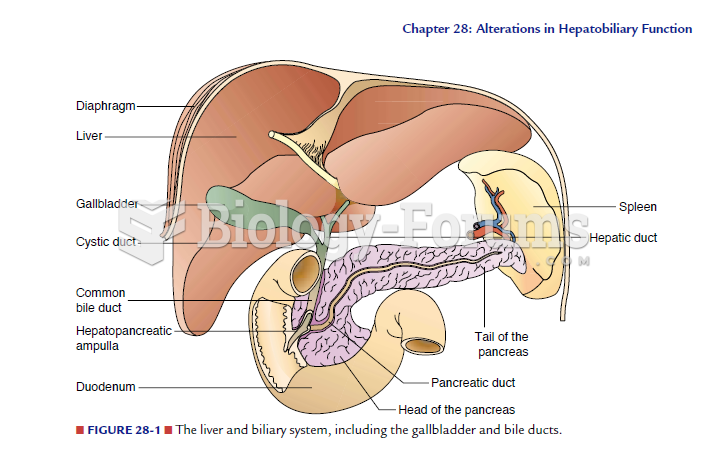|
|
|
Human stomach acid is strong enough to dissolve small pieces of metal such as razor blades or staples.
According to the National Institute of Environmental Health Sciences, lung disease is the third leading killer in the United States, responsible for one in seven deaths. It is the leading cause of death among infants under the age of one year.
In ancient Rome, many of the richer people in the population had lead-induced gout. The reason for this is unclear. Lead poisoning has also been linked to madness.
Thyroid conditions may make getting pregnant impossible.
Tobacco depletes the body of vitamins A, C, and E, which can result in any of the following: dry hair, dry skin, dry eyes, poor growth, night blindness, abscesses, insomnia, fatigue, reproductive system problems, sinusitis, pneumonia, frequent respiratory problems, skin disorders, weight loss, rickets, osteomalacia, nervousness, muscle spasms, leg cramps, extremity numbness, bone malformations, decayed teeth, difficulty in walking, irritability, restlessness, profuse sweating, increased uric acid (gout), joint damage, damaged red blood cells, destruction of nerves, infertility, miscarriage, and many types of cancer.
 Medicinal leeches on a patient’s neck. Today leeches are sometimes used in microsurgery to prevent b
Medicinal leeches on a patient’s neck. Today leeches are sometimes used in microsurgery to prevent b
 The Kingsley plantation, on Fort George Island in Jacksonville, Florida. Zephaniah Kingsley, the own
The Kingsley plantation, on Fort George Island in Jacksonville, Florida. Zephaniah Kingsley, the own





